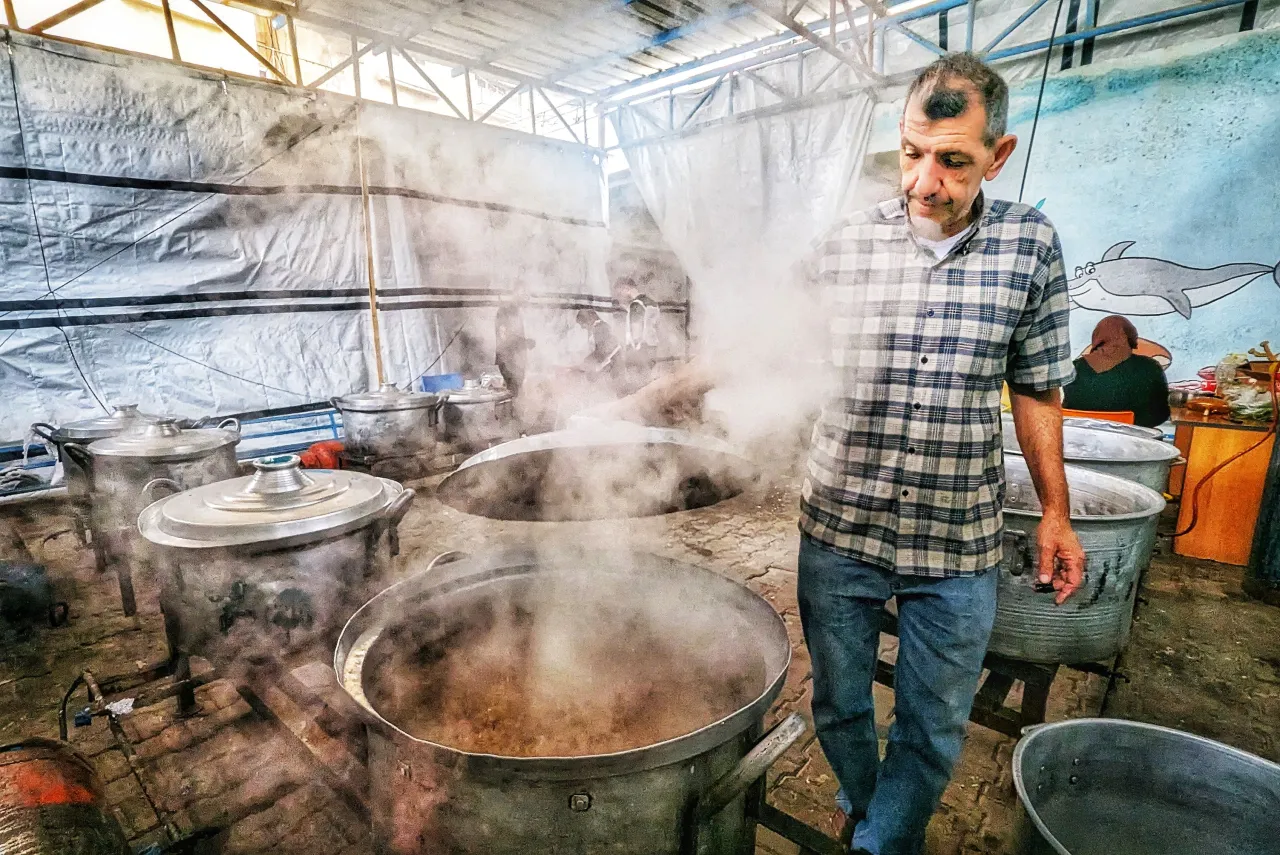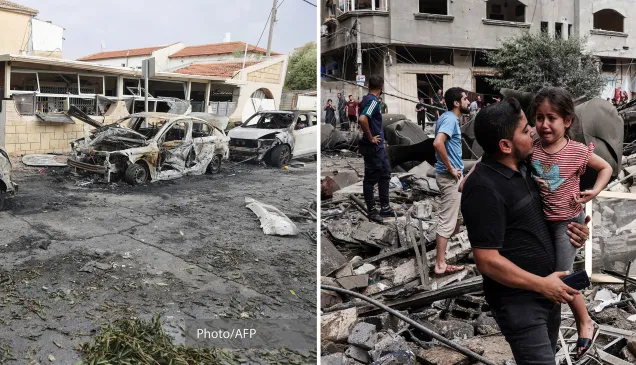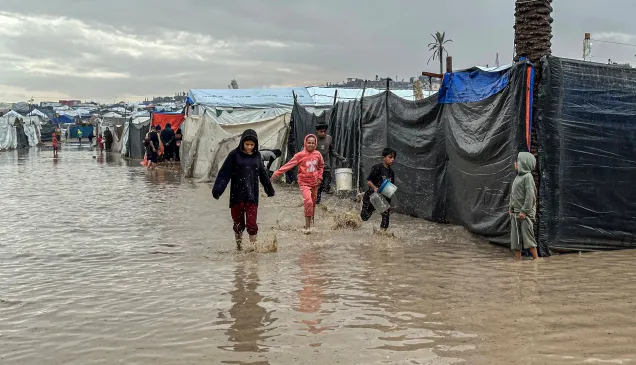Gaza: Common kitchens feed thousands as food stocks dwindle
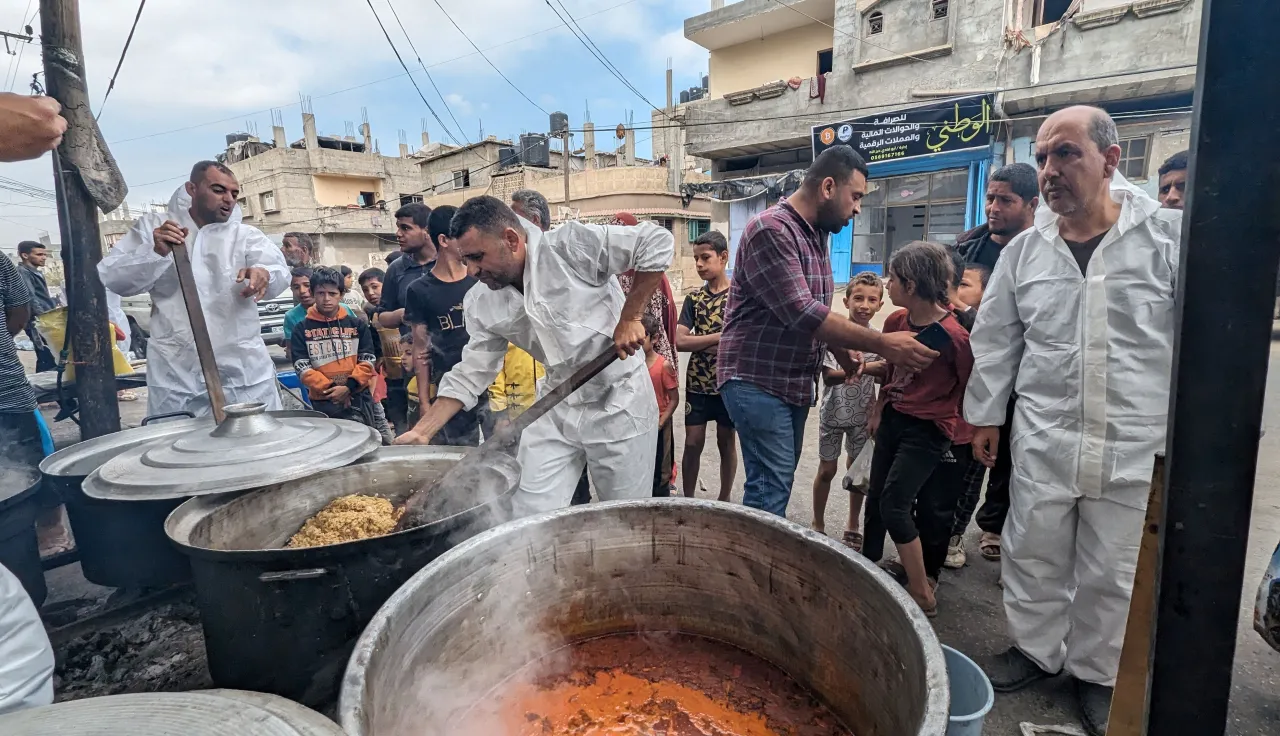
By the time the sun rises over Deir al-Balah in the Central Gaza Strip, Mamdouh Abu Dahrooj is already at the common kitchen, working to provide hot meals for thousands who may not have anything else to eat that day. He moves deftly between steaming pots and stacks of food containers, calling out greetings to his colleagues, many of whom haven’t slept much in recent nights as the sounds of explosions echo around their neighbourhoods.
“Despite fear and insecurity, people keep coming to the kitchens,” says Mamdouh, a Common Kitchen Distribution Officer. “They say the need is greater than the fear — and that there’s nothing more terrifying than watching your children starve. It’s not a matter of choice. It’s survival.”
Mamdouh is one of many workers dedicated to keeping ICRC-supported common kitchens running in Deir al-Balah, an area that has become both a refuge and a last resort for thousands of families displaced by conflict.
On any given day, six ICRC-supported kitchens in Deir al-Balah and Khan Younis serve hot meals to over 19,200 people — that’s more than 3,800 households relying on these meals as their only source of nourishment.
In addition to the kitchens, the ICRC supports community baking facilities in 15 shelters across Gaza City. These ovens produce 70,000 loaves of fresh bread every day — a source of sustenance for 12,500 displaced people.
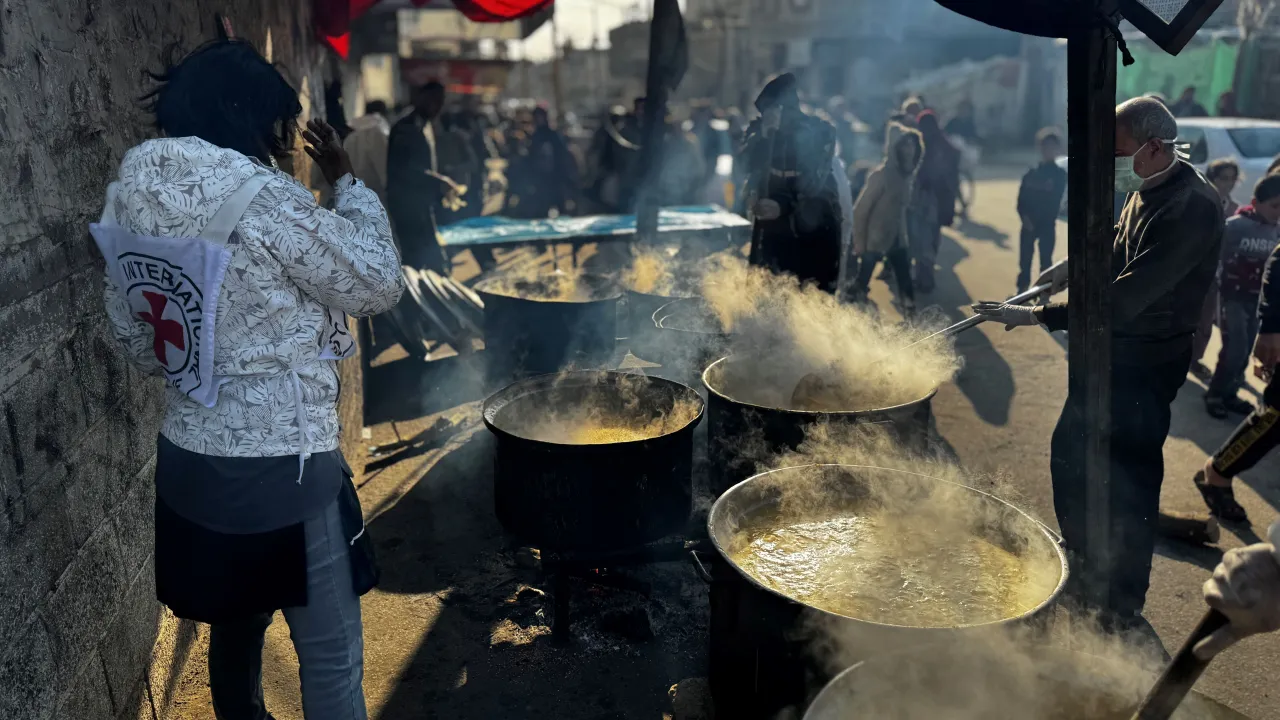
Why a common kitchen?
In Gaza, food is scarce. Prices are sky-high. Cooking gas is almost impossible to find, and even firewood costs too much. Many families have lost not only access to food but also the means to prepare it.
That’s where the common kitchens come in — not just as providers of nourishment, but as a vital lifeline.
Through bulk food distribution and cash-for-work programs, the ICRC helps sustain these kitchens, ensuring they have both the resources and the manpower to continue their life-saving work.
It is a challenging operation: massive pots, industrial burners, lines of volunteers working shoulder to shoulder, and queues of residents clutching empty bowls, hoping today is not the day the food runs out.
“Sometimes the line keeps growing and we run out of food before everyone is served,” Mamdouh says. “Families leave in silence, children walk away with their empty bowls, and some of them even fight over what’s left. That moment, when we have nothing more to give — that’s the hardest part of my day. It stays with me.”
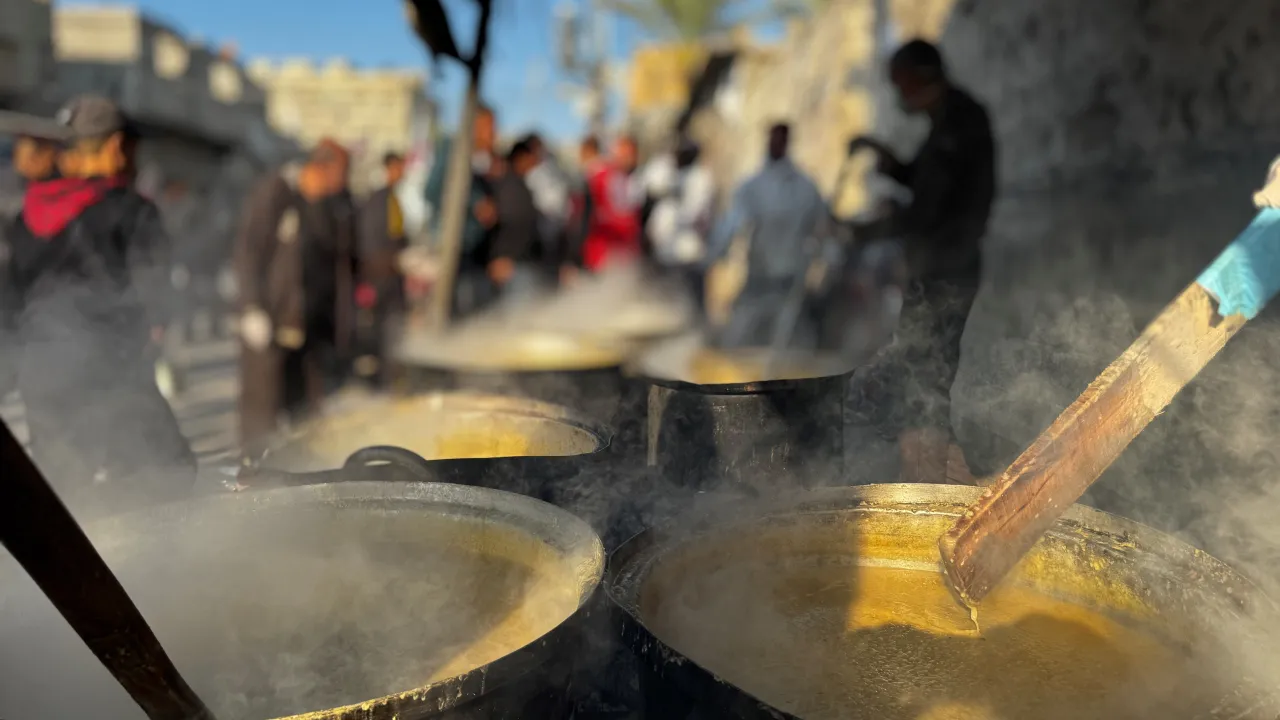
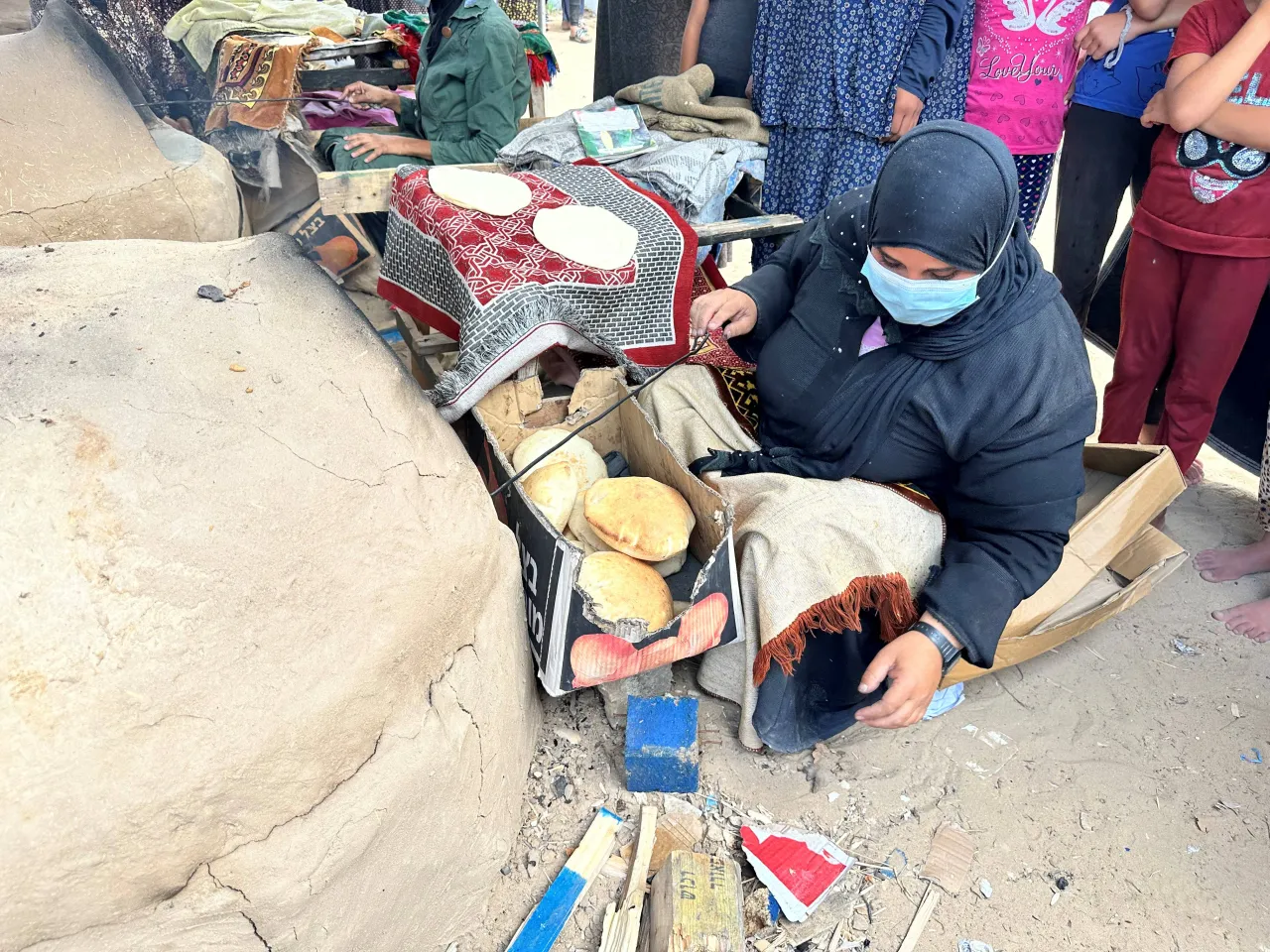
No time to look away
Mamdouh doesn’t pretend this work is easy.
“I’m not here because I’m strong,” he says. “I’m here because I can’t look away — I can’t just watch people suffer. I want to do something, even if it’s small.”
What keeps him going are the faces he sees every day:
“The four orphans in the tent next to us, who have nothing.
Children gripping pots bigger than them.
People telling me, ‘This is our only meal today.’”
Just like the communities they serve, many of the staff in Gaza’s common kitchens and community baking facilities are also displaced, also struggling to support their own families.
Still, they show up — not only to work but to support and to survive.
Even when they’re tired.
Even when they’re afraid.
Even when the lines are long and the food runs out.
